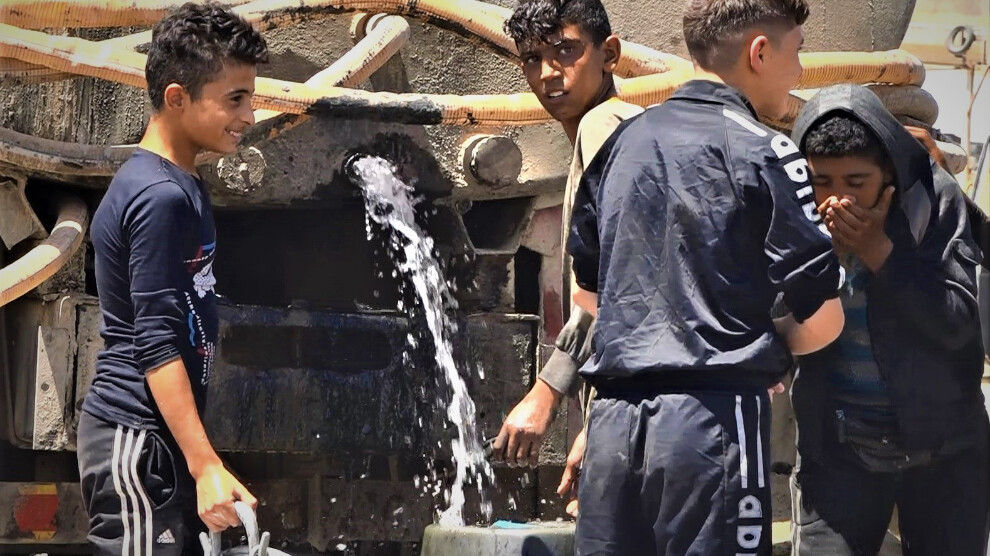Shortage of water in Hesekê Canton continues
The Turkish state has been cutting off the drinking water of 1.5 million people living in Hesekê Canton since August.
The Turkish state has been cutting off the drinking water of 1.5 million people living in Hesekê Canton since August.

In the past, the main drinking water source of Hesekê Canton was Alouk Station in occupied Serêkaniyê. However, after the Turkish state occupied the city in October 219, it cut off the water more than 30 times as a method of special warfare. The water cut, which was last done last August, still continues.
Speaking to ANHA, Hesekê Canton Water Directorate co-chair Newar Sebrî said: "Since the first day of the occupation of Serêkaniyê by the Turkish state and its mercenaries, the residents of the canton have had great difficulty in finding drinking water."
Newar noted that the invading Turkish state used Alouk Station as an element of pressure against the Autonomous Administration.
Stating that the invading Turkish state has reduced the rate of water flowing in the city since last June, Newar said that water used to come every day and then every 3 days.
Stating that the main water line was cut in the occupied areas, Newar said: “Despite this, we did not cut off the electricity of the station. However, we cut off the electricity going to the station because there were violations on the main line and water did not reach the area.
Violations of agreements
Newar stated that those who claim to be a human rights organization, especially the UN, should take a serious attitude towards this issue and Alouk Station should solve the problem.
On the other hand, legal activist Xalid Cebir pointed out that the Turkish state violated the Geneva Convention of 1949 and the two protocols of 1977, as well as the 14th article regarding the water supply of Alouk Station.
Mihemed Elî Ferhan, Member of the Serêkaniyê-Cizre District Lawyers Union, said: "The invading Turkish state is violating all international laws and conventions by cutting off water, especially article 2 of the 1907 Hague Convention."